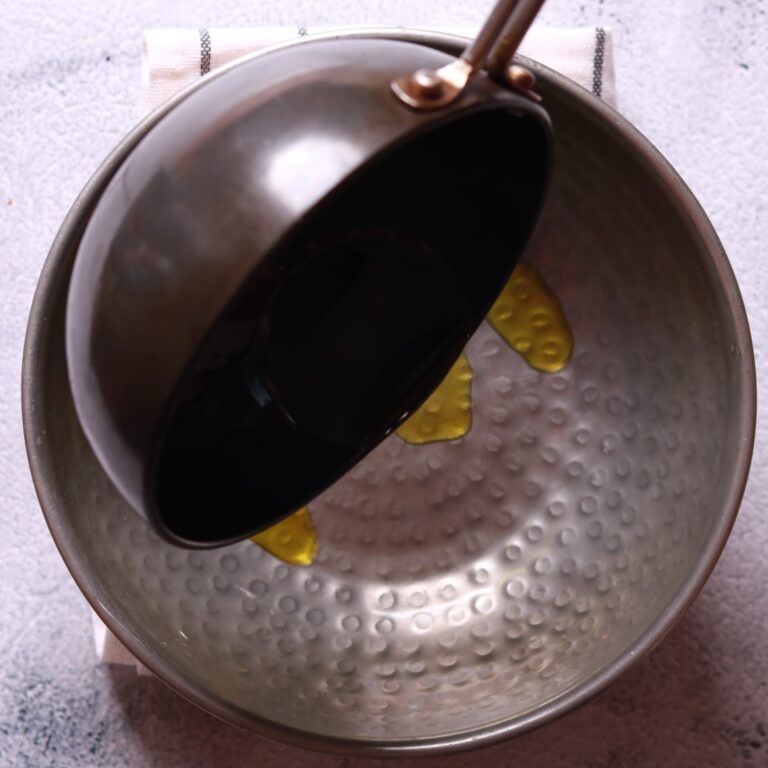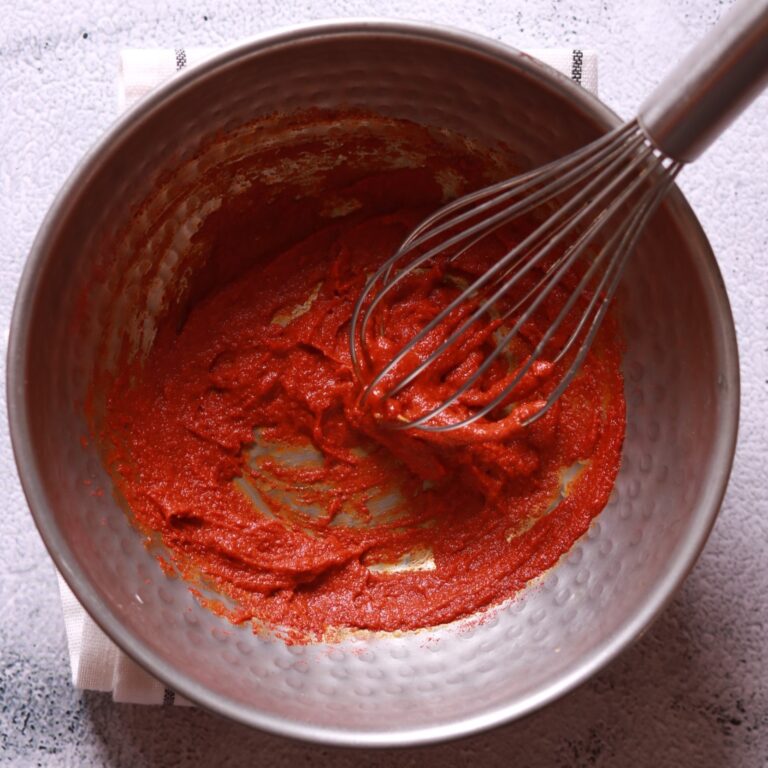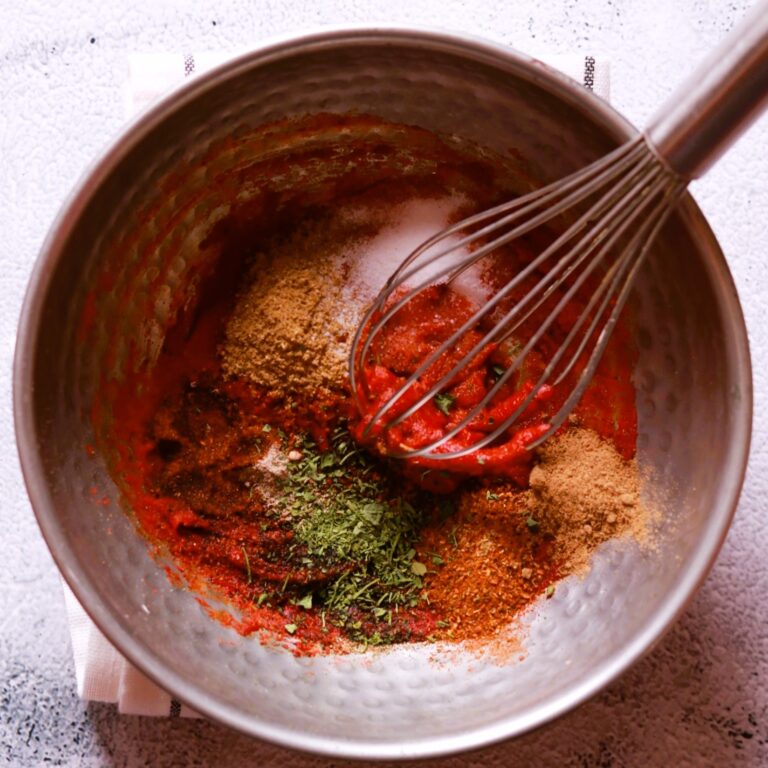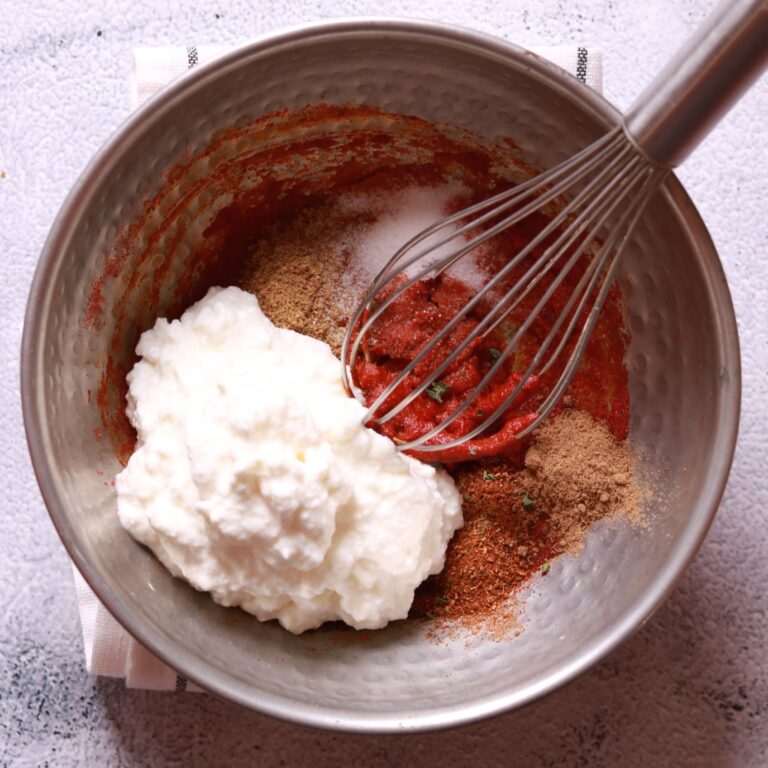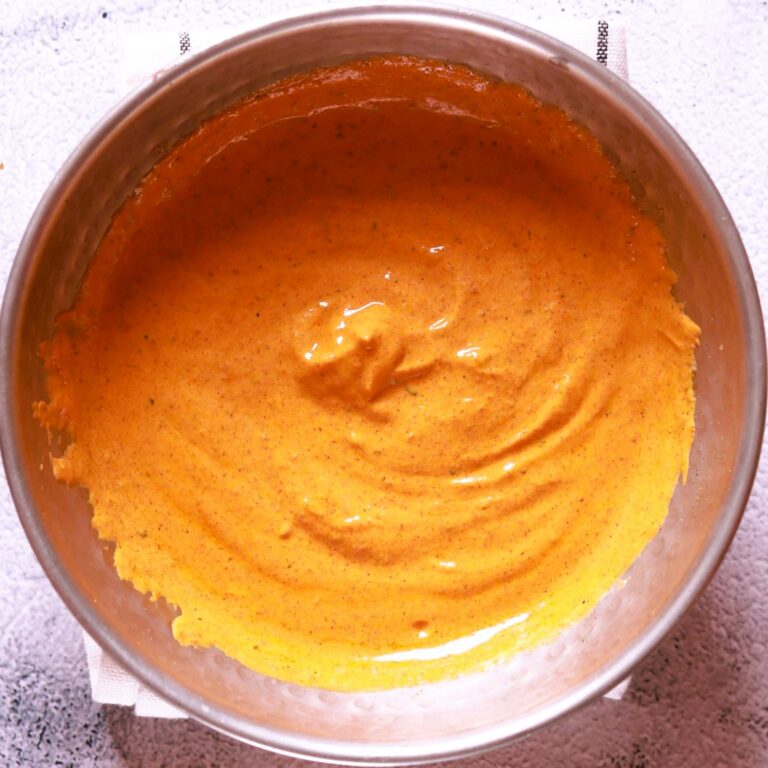Tandoori Marination! If you’ve ever had perfectly cooked juicy tandoori chicken then surely you know what wonders this technique can do for your cooking repertoire; but not only is tandoori marination paste recipe just another process – it’s an art form too; because behind every recipe lies years upon years worths of tradition passed down through generations by these Indian cooking gurus.
For those who may not know, TANDOORI MARINATION paste is a method used in preparing meats and vegetables for cooking in a Tandour (An Indian Clay oven) though originally came from the Punjab region it now has found its place outside India too, including other countries’ cuisines as well.
So whether you are an amateur looking to jazz up your weekly menu or a professional chef wanting more from your meals, then master the art of tandoori marination which will take them out-of-this-world tasty. So let us begin shall we?
Why I LOVE… Tandoori Marination Paste Recipe!

Tandoori marination paste is LIKE the bomb dot com! Seriously, it’s like a flavor explosion in your mouth that you just can’t resist. First off, let’s talk about that vibrant RED color. It’s INSTANTLY eye-catching and gets your taste buds all excited before you’ve even taken a bite. Then there’s the SMOKY aroma that wafts through the air as it cooks – it’s like a little preview of the flavor party that’s about to happen.
But WAIT, it’s not just about looks and smells – it’s about the TASTE, baby! That blend of yogurt, SPICES, and tangy lemon juice creates a symphony of flavors that dances on your palate. It’s creamy, it’s tangy, it’s SPICY – it’s everything you could ever want in a MARINATION. And let’s not forget the tenderizing effect it has on the meat. Seriously, it’s like MAGIC how it turns even the toughest cuts into MELT-IN-YOUR-MOUTH goodness.
So, yeah, if you’re not on board with Tandoori marination, you’re MISSING OUT, my friend. It’s the secret weapon that takes any dish from “meh” to “WOW” in no time flat. Trust me, once you try it, you’ll be HOOKED for life.
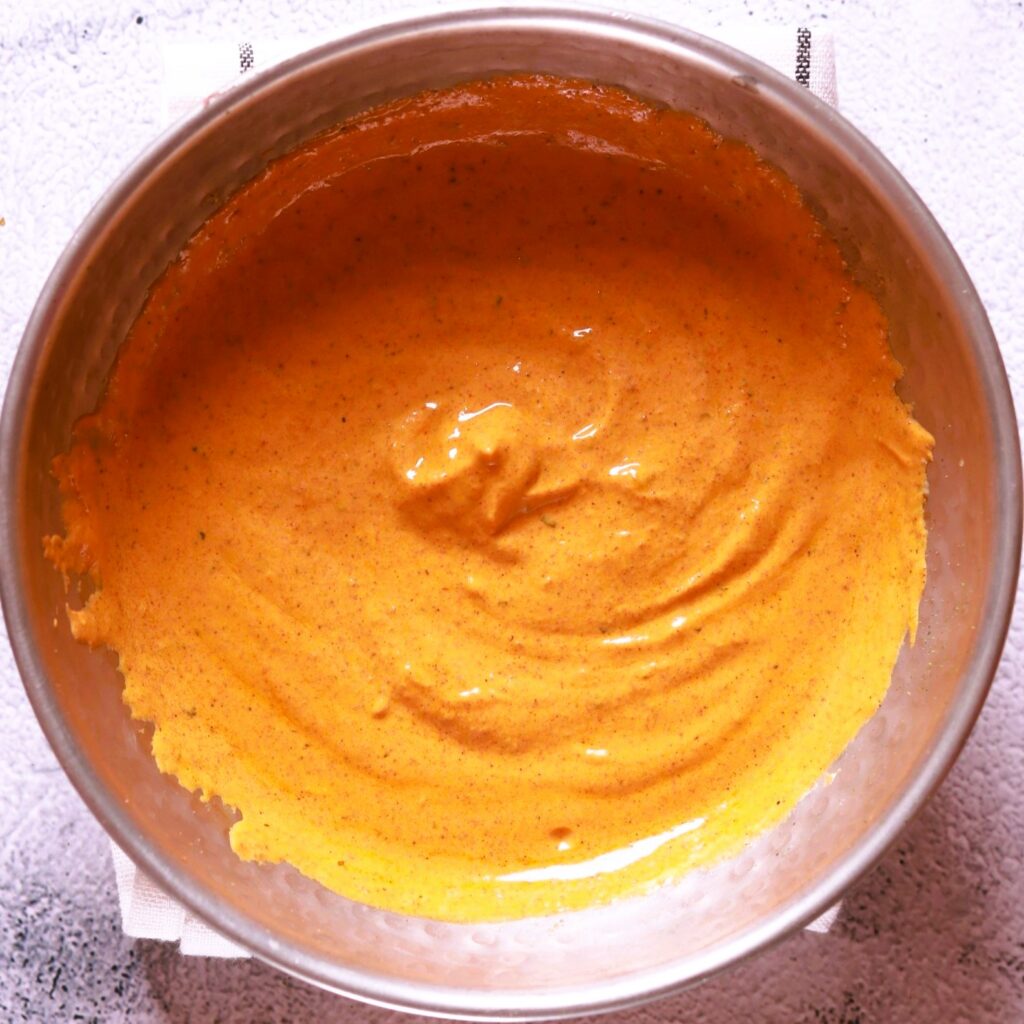
The History & Significance Of Tandoori Marination
This technique can be traced back to ancient times on the Indian Subcontinent, where great food has always been part and parcel of life; it was first practiced among Punjabis but later made famous by Mughals themselves hence the word ‘Tandoori’ derived from ‘Tandoor’ meaning clay oven used for cooking meat that had been marinated through this method.
Its importance lies in infusing flavours into food – ingredients are soaked in yoghurt mixed with spices that not only tenderize the meat but also give off a unique smoky taste associated with tandoori recipes.
Today, it is popular all over the world as one of the hallmarks representing Indian cuisine globally, so don’t be surprised if someone asks you what types of dish could you make using this marinade? Some examples include; TANDOORI CHICKEN, CHICKEN TIKKA, PANEER TIKKA, TANDOORI GOBHI etc.
What You Need To Make A Good Tandoori Marination
Regarding spices, as a rule, in a tandoori marinade, use cumin, coriander, turmeric, and garam masala with chilli powder for some heat. Fresh crushed garlic and ginger add flavour while lemon juice and chaat masala gives it a tangy kick.
To achieve the red colour commonly associated with tandoor dishes, traditionally, chefs used ‘Kashmiri red chilli powder’.
My Tandoori Marination Paste Recipe: Image Gallery






Chef Yogi’s Notes: Tips and Tricks for Perfect Tandoori Marination
Always use full-fat yoghurt – the fat helps to tenderize the meat and keep juiciness while cooking.
Secondly, ground your spices freshly which will make your marinade more flavorful.
Thirdly is marination time; a longer marinating period yields better-tasting food. However, do not overdo this step as it can lead to overly tenderized or mushy meat.
Lastly, baste with ghee or butter while cooking; this adds richness to the taste and achieves the typical tandoor char.
Common Mistakes In Tandoori Marination And How To Avoid Them
Like any other culinary technique there are bound to be mistakes made along the way when making tandoor dish recipes.
- One such mistake is using too much yoghurt; though it helps in making meat tender when used excessively, it makes the marinade watery, thus failing to stick onto the food.
- Another common error people commit during the preparation of these Indian meals involves insufficient marinating time frame; always ensure enough hours have elapsed since application onto surfaces lest desired flavours fail being infused into them. For best results, however, let it sit overnight after a minimum two-hour soaking period has been achieved.
- Finally, a low-temperature setting could result in dryness without any taste at all because these types of foods need high heat levels which bring about unique chars plus smoky flavours associated with them.
How Does The Flavor Get Enhanced Through Tandoori Marination?
This is one recipe that can entirely change your taste buds as far as flavours are concerned. The marinade acts as a carrier that transports various spice tastes deep inside the meat or vegetables thereby creating a dish full of taste in each bite.
In addition, high temperatures used during the tandoori cooking process caramelize sugars found within the marinate, leading to the formation of a sweet crispy coat on the food surface while smoking it at the same time. This, coupled alongside tender, juicy interiors achieved through prolonged soaking hours, makes eating such kinds of dishes an experience never to forget.
Ingredients
- 250 gm Curd/ Yoghurt Thick or Hung
- 1 tbsp Mustard oil or vegetable oil
- 1 tbsp Ginger Garlic paste Search for "Ginger garlic paste" in this website
- 1 ½ tbsp Kashmiri red chilli powder or Paprika powder For Color
- ¼ tsp Turmeric Powder
- ¼ Black pepper Powder
- ½ Garam masala Powder
- ½ tbsp Coriander seeds powder
- ¼ tsp Black pepper Powder
- ¼ Kastoori methi crushed
- 1 tsp green cardamom powder
- 1 tsp Table Salt
- ½ tsp Chaat Masala
Instructions
Warm Mustard Oil:
- Begin by gently heating the mustard oil until it reaches a warm temperature. This step is essential to mellow down the pungency of the mustard oil, ensuring a harmonious blend of flavors.
Add Red Chilli Powder:
- Introduce the vibrant Kashmiri red chilli powder into the warm oil. Opt for a variety that is less fiery yet imparts a rich hue, creating a visually appealing and perfectly balanced spice profile. Add Turmeric and Ginger garlic paste.
- Mix well.
Combine Ingredients:
- Add, black pepper powder, garam masala powder, coriander seeds powder, black pepper powder (again!), kastoori methi, green cardamom powder, table salt, and the irresistible chaat masala.
Whip Up Yogurt Mix:
- Now, add the thick or hung curd to the mix and whip it into a smooth, velvety consistency. This yogurt symphony brings a creamy texture and a delightful tanginess to our marination masterpiece.
Immediate Use or Store:
- You have two tempting options – either dive straight into the application of this tantalizing marination across various tandoori delights, or exercise patience and store it in an airtight container for later use. The choice is yours!
Chill for Freshness:
- For those who appreciate the anticipation, refrigerate the marination properly. It graciously retains its flavors for a good 4-5 days, allowing you to savor the magic over multiple meals.
Explore Our Latest Recipes
-
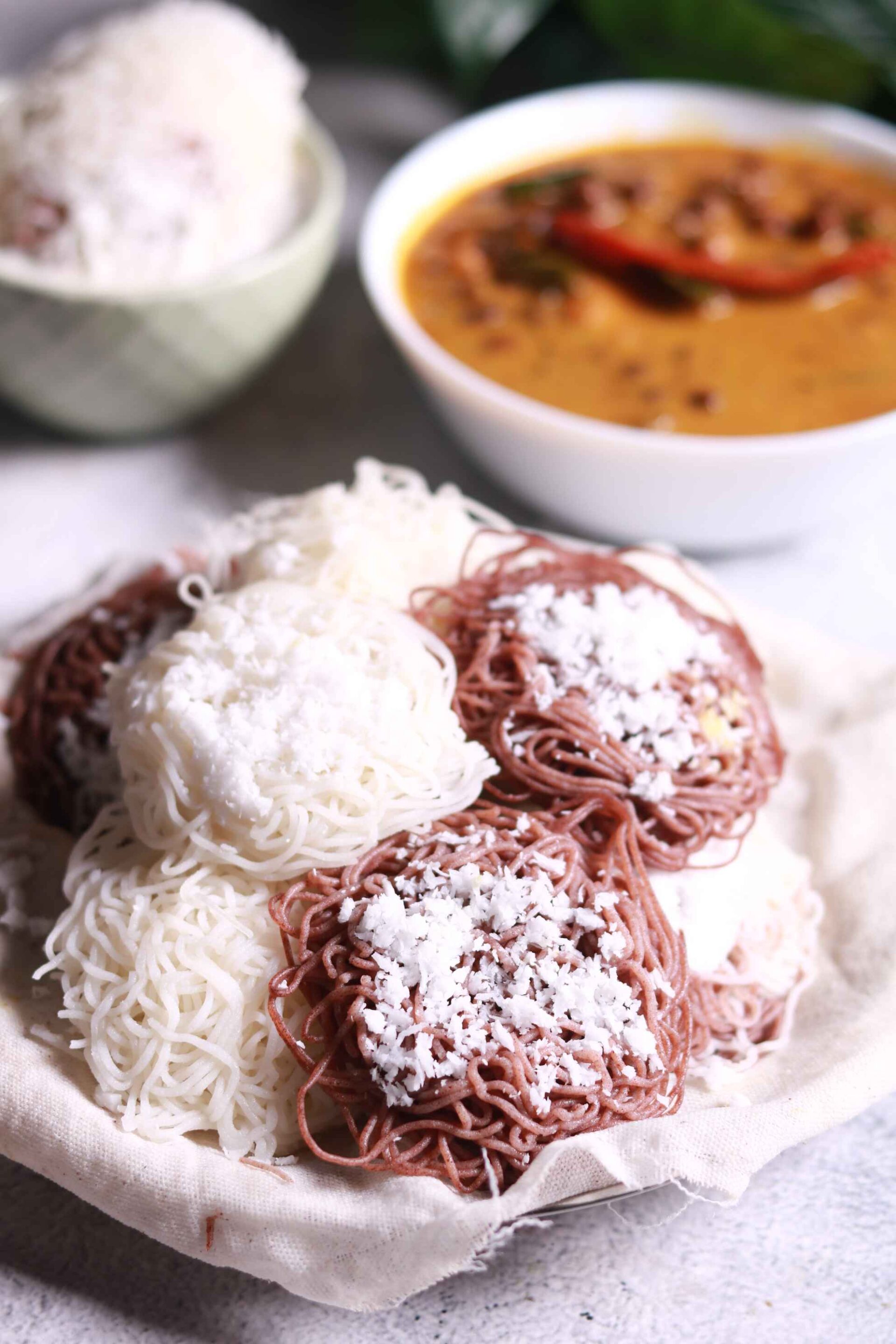
Authentic Idiyappam Recipe: Soft String Hoppers from South India
Authentic Idiyappam- Hey there, if you’ve ever been lucky enough to dig into a plate of fluffy Idiyappam at a South Indian home or restaurant, you know that magic—those delicate rice noodles, steamed to perfection,… Read more
-
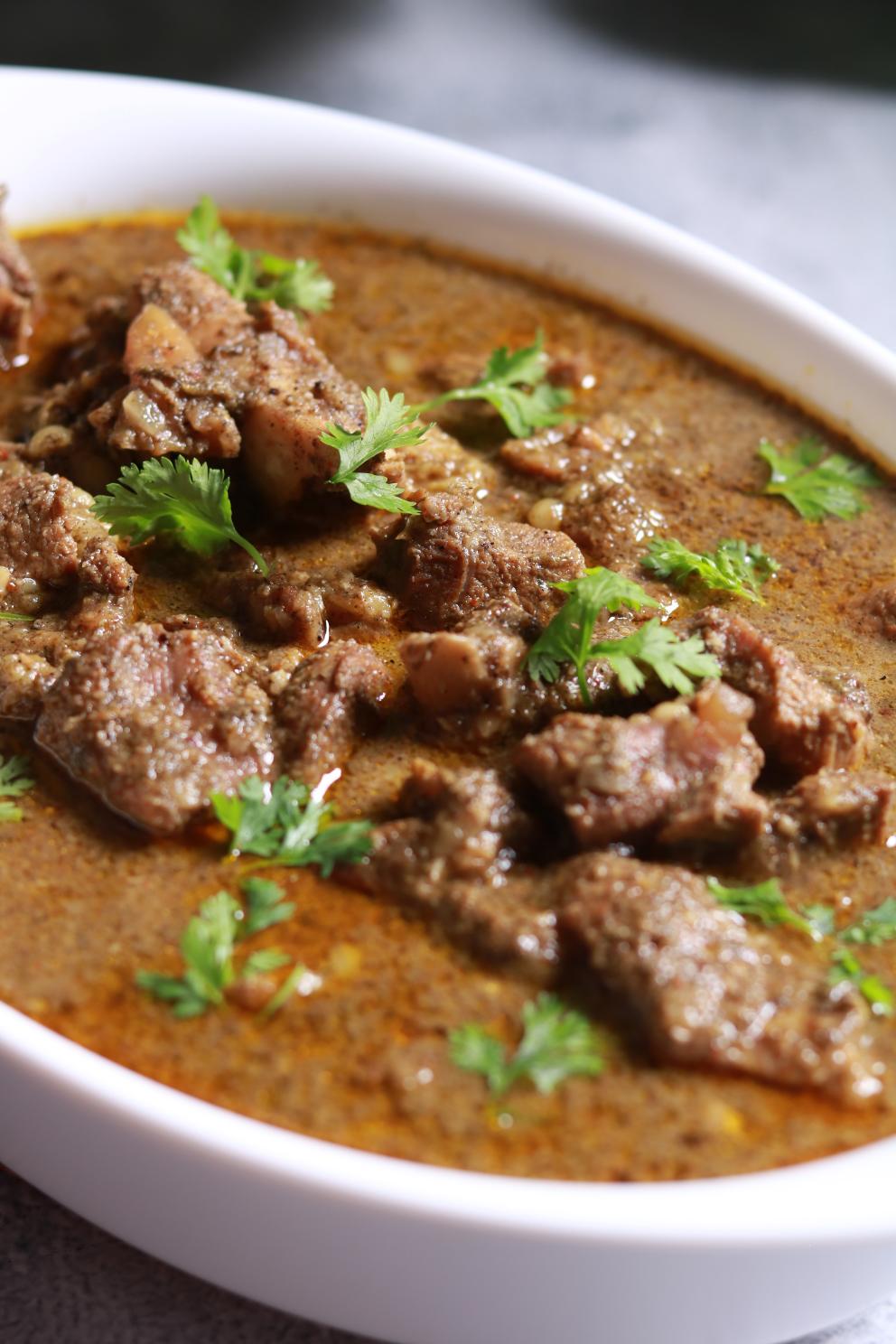
Authentic Kala Mutton Curry (Black Mutton)
Hey there, if you’re craving something rich, smoky, and downright addictive, let’s talk about black mutton curry, or kala mutton as it’s known in Maharashtra. This Maharashtrian gem gets its name from the deep, almost black… Read more
-
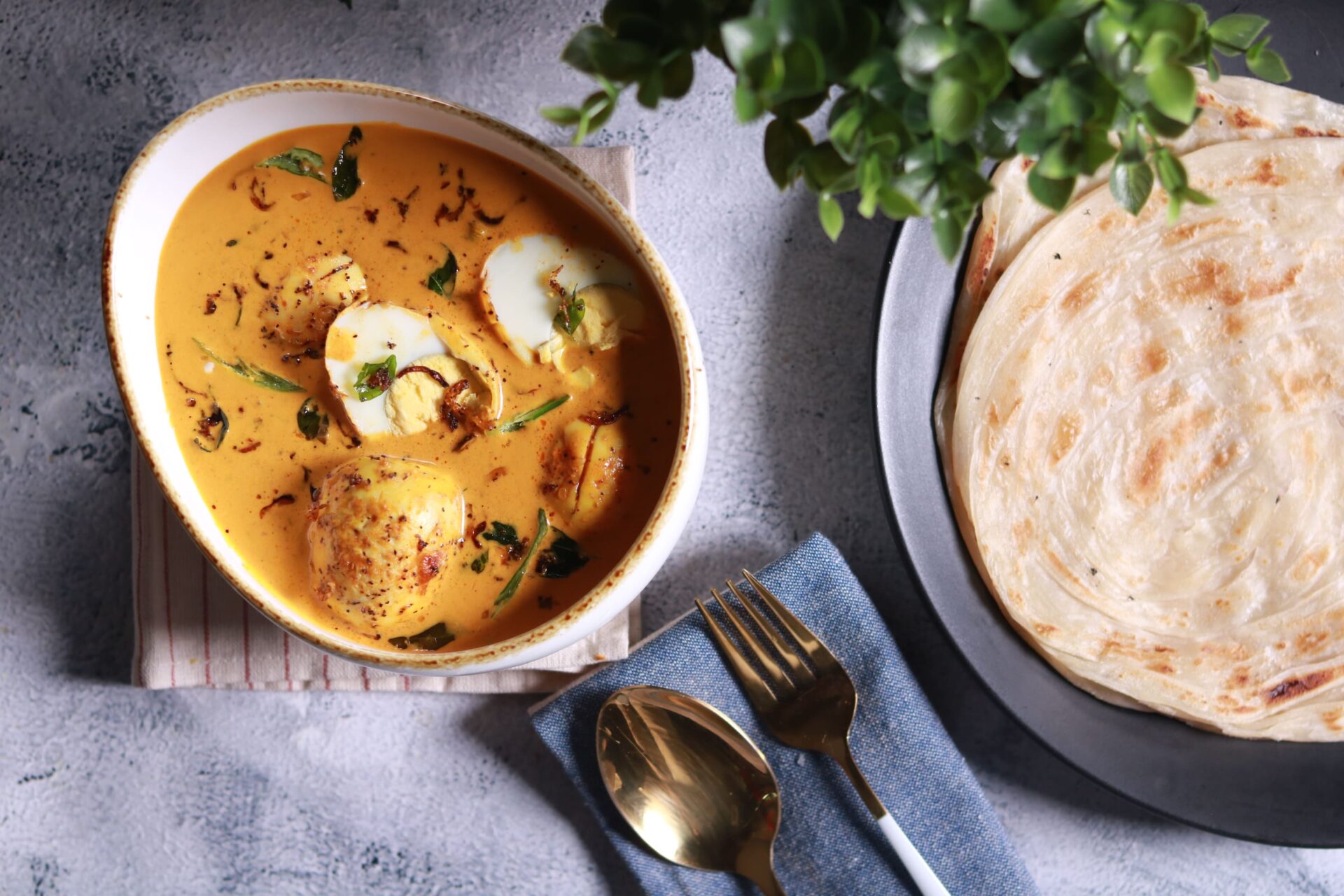
Traditional Kerala Egg Curry with Coconut Milk (Mutta Curry)
If there’s one dish that makes a slow, rainy morning in Kerala feel extra cozy, it’s a Traditional Kerala egg curry with coconut milk, served with soft Paratha or lacy dosa. This is the kind… Read more


